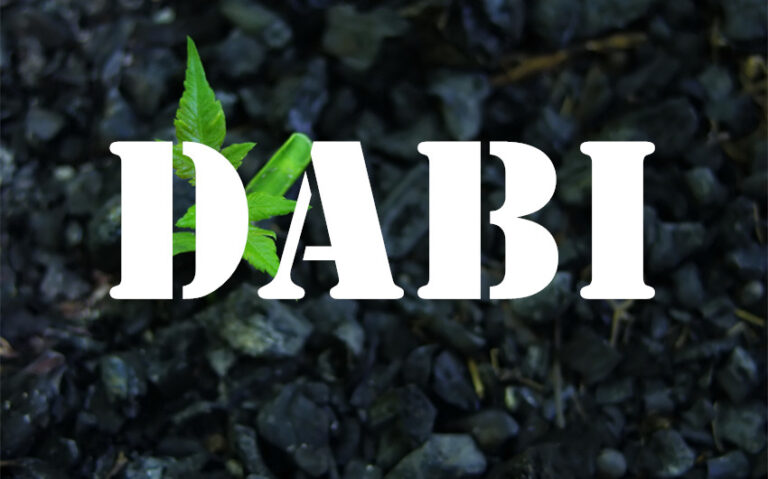110+ Names That Mean Death: Mythical, Poetic, and Symbolic Categories Explained
Names that mean death have a strange pull, don’t they? Whether you’re here for character inspiration, personal reflection, or pure curiosity, something about naming death—or what represents it—grips you. These names aren’t all grim. Some are sacred, others serene. In this exploration, you’ll find names grouped into categories: mythological, linguistic, nature-based, poetic, supernatural, and more. Each one carries the weight of mortality, yet somehow makes it beautiful.
Mythological Names That Embody Death
You’ve seen death turned into deities, destroyers, guardians, and guides. Across cultures, mythological names that mean death—or rule over it—carry power beyond life. These names are bold, often divine, and deeply symbolic.
-
Hades – Greek god of the underworld
-
Persephone – Queen of the dead, symbol of seasonal death
-
Hel – Norse goddess ruling over the dead
-
Anubis – Egyptian god of mummification and afterlife
-
Osiris – Egyptian lord of the dead and resurrection
-
Mictlantecuhtli – Aztec god of the underworld
-
Morrigan – Celtic goddess of fate, death, and battle
-
Izanami – Japanese goddess of death
-
Baron Samedi – Haitian Vodou loa of the dead
-
Ereshkigal – Sumerian queen of the underworld
-
Kali – Hindu goddess of destruction and time
-
Yama – Hindu and Buddhist lord of death
-
Charon – Ferryman of the dead in Greek myth
-
Achlys – Greek goddess of death mist
-
Santa Muerte – Folk saint of death in Mexican tradition
-
Nergal – Mesopotamian god of war and plague
-
Samhain – Celtic deity associated with the end of light
-
Mot – Canaanite god of death
-
Sedna – Inuit goddess associated with the spirit world
These names aren’t just morbid—they reflect how death has always been present in myth, given a face and a name to help you understand the unknown.
Linguistic Names That Literally Mean Death
Some names speak plainly. These are names that, in translation or etymology, literally mean “death” or are rooted in dying. While a few are used as given names, many are symbolic or poetic choices for stories or deeper meaning.
-
Mara – Sanskrit and Slavic roots, meaning “death” or “bitter”
-
Thanatos – Greek for “death”
-
Azrael – Hebrew/Islamic angel whose name means “whom God helps” but symbolizes death
-
Morana – Slavic goddess of winter and death
-
Morte – Italian and Portuguese for “death”
-
Smierc – Polish for “death”
-
Kematian – Indonesian for “death”
-
Shibo – Japanese word for “death” (死)
-
Nakam – Hebrew root word associated with vengeance and death
-
Qiyaamah – Arabic term for the Day of Resurrection (implying death’s finality)
-
Jahi – Avestan demon of decay and death
-
Mavet – Hebrew word for “death”
-
Mortem – Latin accusative form of “death”
-
Nekuia – Greek rite involving the dead
-
Sheol – Hebrew underworld, place of the dead
-
Houwang – Chinese term associated with death gods
-
Mors – Roman god of death; Latin for “death”
-
Kaloian – Balkan word connected to mourning rituals
-
Caoin – Old Irish for “lament” or “weep,” often for the dead
-
Amar – A name that in some languages (Arabic, Hindi) flips between eternal life and a pun on death in others
Each of these names comes straight from language, often hidden in plain sight.
Nature-Inspired Names Symbolizing Death
Nature has always mirrored death: falling leaves, decay, darkness. Here are names from plants, animals, and natural phenomena that evoke death or symbolize it deeply.
-
Raven – A bird linked to omens and death
-
Crow – Often a harbinger of death in myth and folklore
-
Nightshade – A toxic plant historically tied to death
-
Yew – A tree found in graveyards; symbolizes mourning
-
Ash – After fire, or from the ashes we rise
-
Willow – Especially the weeping willow, linked to sorrow and death
-
Hellebore – “Christmas rose,” poisonous and used in death rites
-
Cypress – A tree of mourning in ancient cultures
-
Hemlock – Poisonous plant famously used by Socrates
-
Foxglove – Beautiful but deadly, like death itself
-
Belladonna – “Beautiful lady” with deadly effects
-
Thorn – Symbol of pain, protection, and mortality
-
Obsidian – Dark volcanic glass used in ritual blades
-
Wolfsbane – A plant tied to both death and werewolf lore
-
Midnight – Symbolic of death’s arrival, the end of day
-
Shade – Literal and metaphorical meaning of ghost
-
Storm – Destructive force, often clearing the way for death
-
Winter – The death season in the natural cycle
-
Gloaming – Twilight; the fading of light (life)
-
Eclipse – Cosmic symbol of sudden darkness and awe
These names give death an earthly presence, turning it into something you can see, touch, and name.
Gothic and Poetic Names Evoking Mortality
Some names are steeped in mood and metaphor. They don’t directly mean “death,” but they conjure it with beauty, darkness, or haunting grace.
-
Lilith – A symbol of forbidden power, exile, and night
-
Vesper – Evening star; twilight symbol
-
Nocturne – A musical piece for the night
-
Morticia – A gothic invented name clearly derived from “mort”
-
Draven – Fictional, dark-sounding name from “The Crow”
-
Riven – Suggests something broken or torn
-
Lucien – Means “light,” but often used with dark characters
-
Seraphine – Angelic but dramatic, with funereal connotation
-
Bellamy – “Fine friend,” but sounds sorrowful in Gothic use
-
Briar – Thorny beauty, often tangled with fairy tales and curses
-
Desdemona – Shakespearean tragedy
-
Evadne – Greek tragic figure
-
Ophelia – Linked to beauty, water, and death
-
Liora – Means light, but pairs well with dark imagery
-
Zephyrine – A breeze that passes, like life
-
Isolde – From the doomed lovers of Arthurian legend
-
Elvira – Gothic flair, made popular by horror culture
-
Nyx – Goddess of night
-
Verlaine – Melancholy poetic name
-
Melinoe – Greek spirit with pale limbs, daughter of Persephone
These names are perfect if you’re looking for something that whispers death without saying it.
Angelic and Supernatural Names of Death Messengers
Some names belong to those who deliver death, not personify it. Angels, spirits, demons, and guides—they act as the passage between life and what follows.
-
Samael – Ambiguous angel, sometimes death-bringer
-
Shinigami – Japanese “death god” or spirit
-
Psychopomp – A guide for souls (not a name, but a role)
-
Banshee – Wails before death
-
La Llorona – The crying woman, tied to death of children
-
Churels – Female spirits from South Asia, linked to wrongful death
-
Yuki-onna – Snow woman who appears before death
-
Pontianak – Malaysian vampire spirit
-
Revenant – Returned dead
-
Valkyrie – Choosers of the slain
-
Dullahan – Irish headless rider, harbinger of death
-
Lamia – Greek demon who devoured children
-
Ekimmu – Mesopotamian spirit of the dead
-
Preta – Buddhist hungry ghost
-
Myling – Scandinavian child ghost
-
Slavic Rusalka – Spirits of the drowned
-
Moirae – The Fates who cut life’s thread
-
Ankou – Breton spirit collecting the dead
-
Grim – Often shorthand for Grim Reaper or shadow figure
These figures remind you that death often comes with a face—or a whisper.
Cultural Names for Death Itself (Personified)
Lastly, sometimes death is simply called by name. You might not give your child these names, but they appear in stories, rituals, and art around the world.
-
Death – Sometimes capitalized, sometimes feared
-
La Muerte – “The Death” in Spanish, often personified
-
The Reaper – Cloaked, skeletal figure of Western death
-
The Pale Rider – Revelation’s fourth horseman
-
Old Lady – Euphemistic term for death in some cultures
-
The Ferryman – Charon or unnamed guides
-
The Black Dog – English folk symbol of approaching death
-
Lady Death – Gothic reinterpretation of death as feminine
-
Father Time – Sometimes entwined with mortality
-
The Collector – A modern mythic figure
-
Giltinė – Lithuanian goddess of death
-
Ah Puch – Mayan god of death
-
The Angel of Death – Common across Abrahamic religions
-
Todesengel – German for Angel of Death
-
Namtar – Mesopotamian bringer of death
-
Grimalkin – Sometimes linked to witches and death
-
Keres – Death spirits in Greek myth
-
Lobishomen – Brazilian myth, sometimes tied to death-dealing transformations
These aren’t just names—they’re how cultures give shape to something you can’t avoid but can try to understand.






